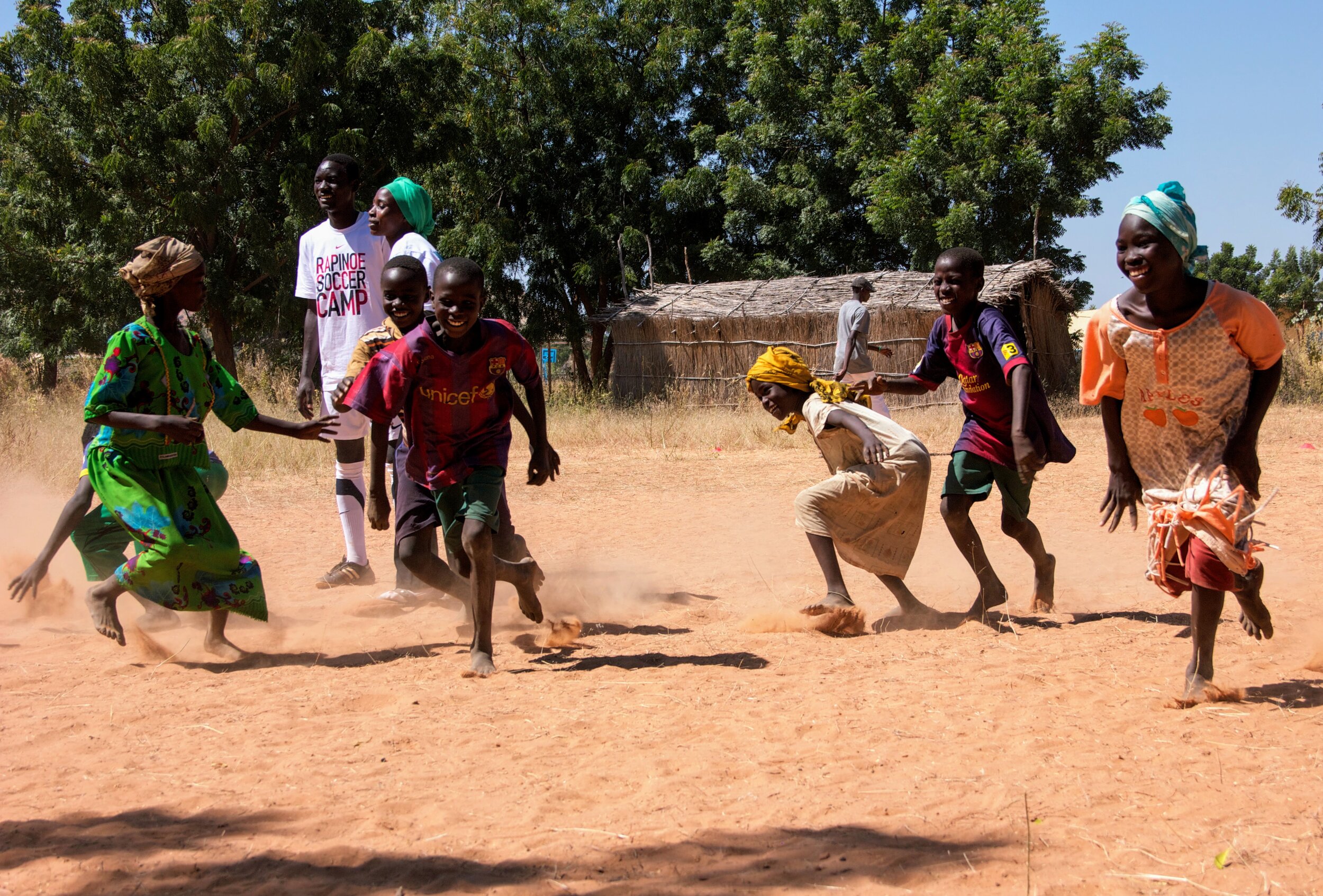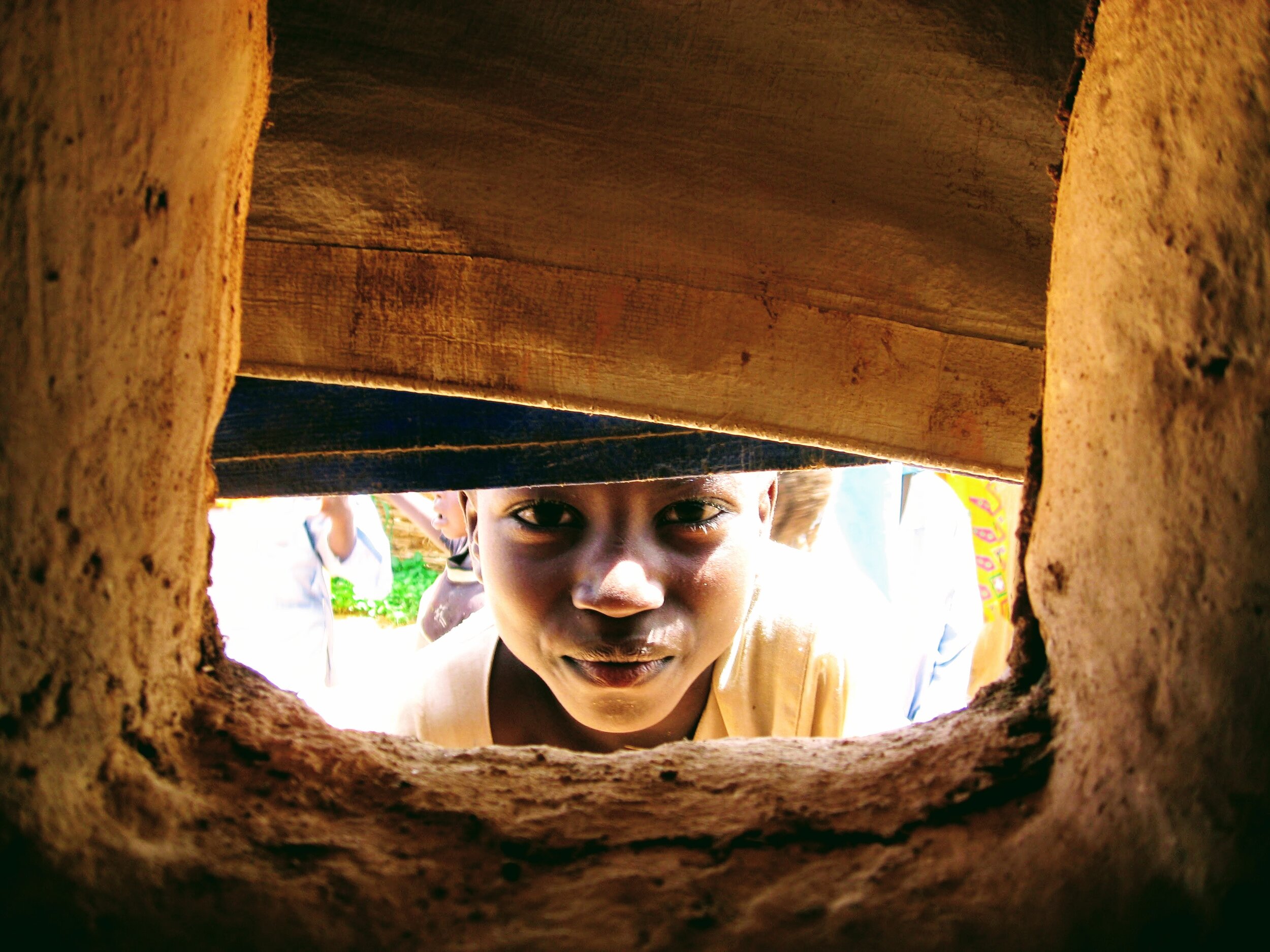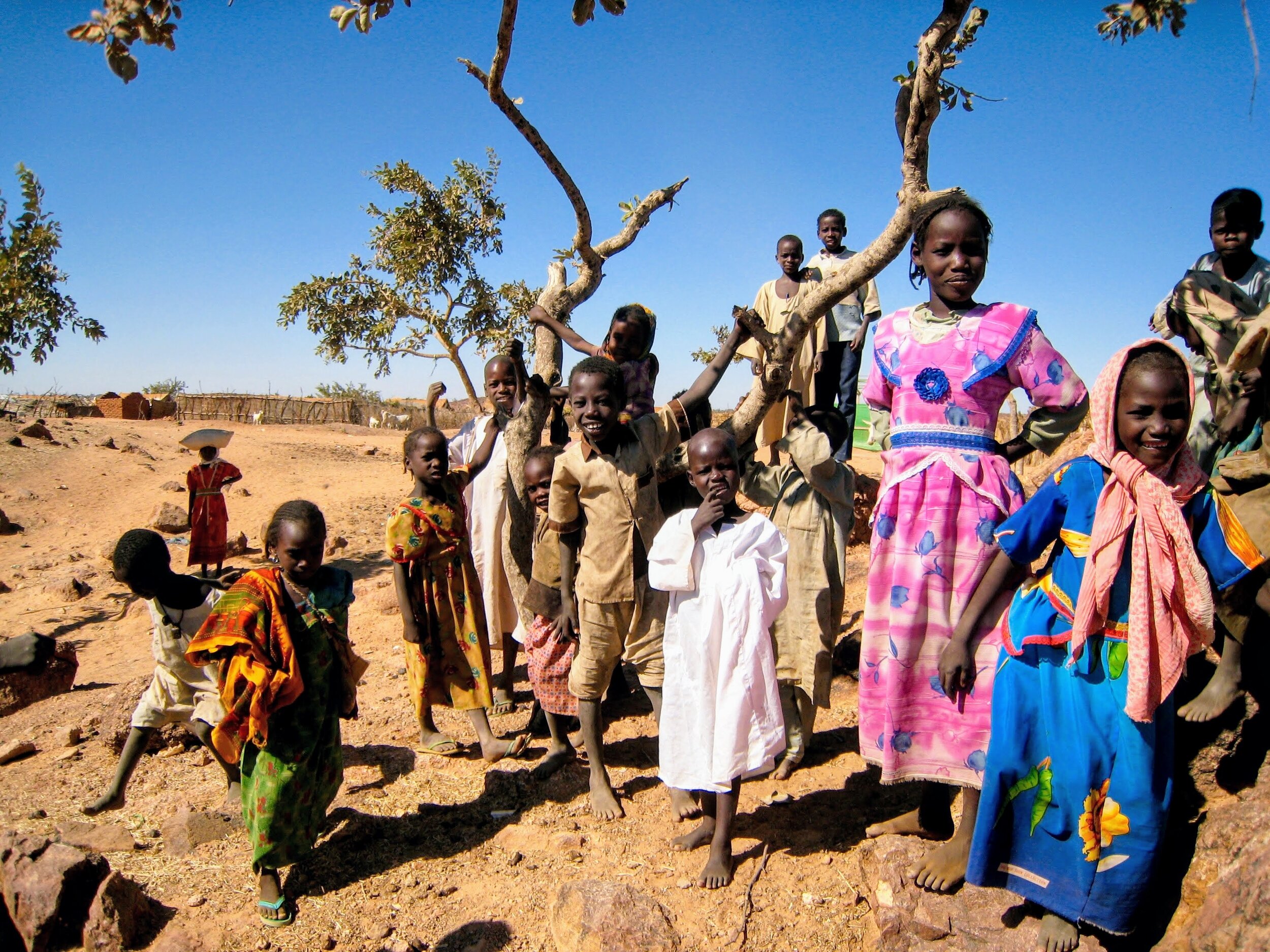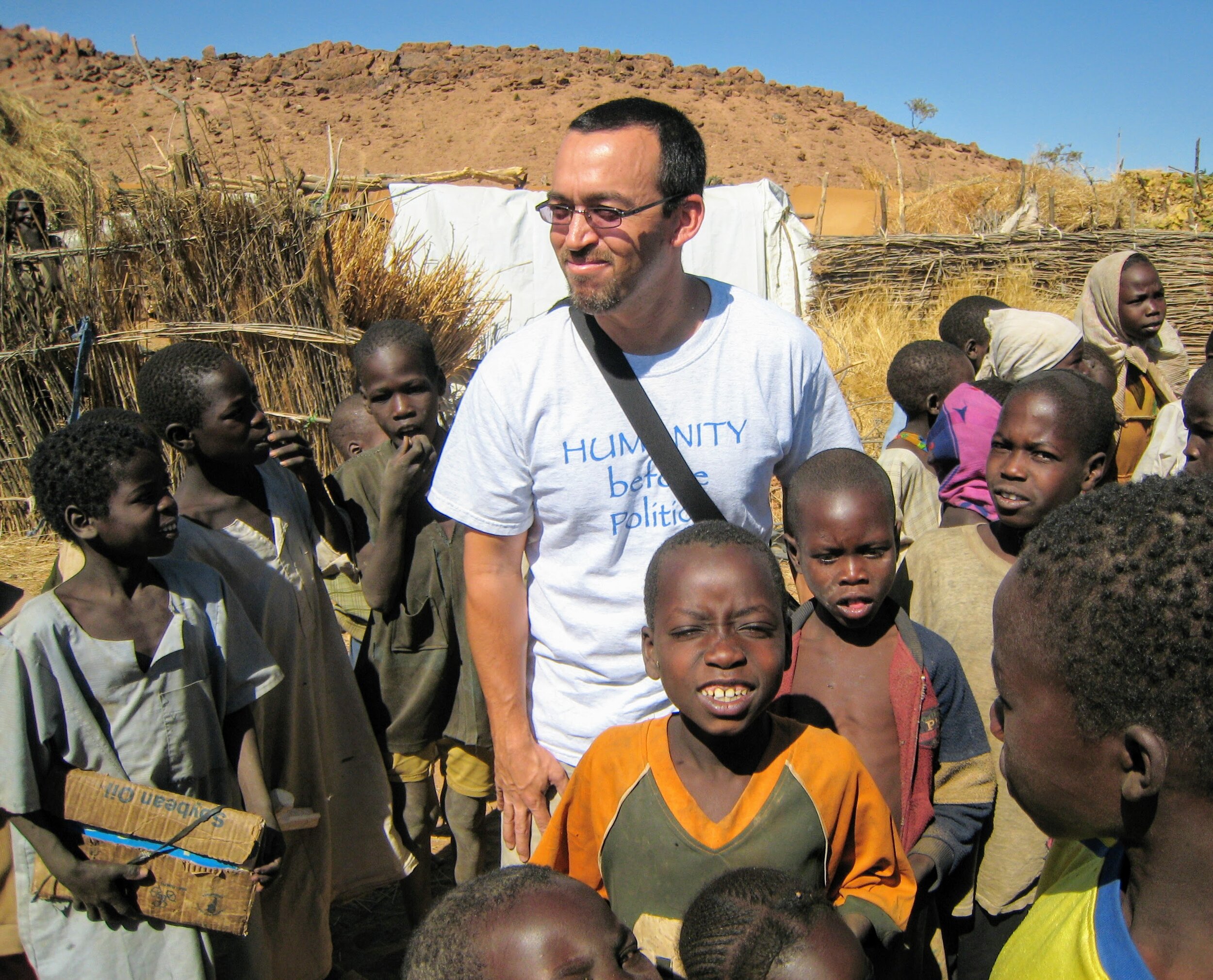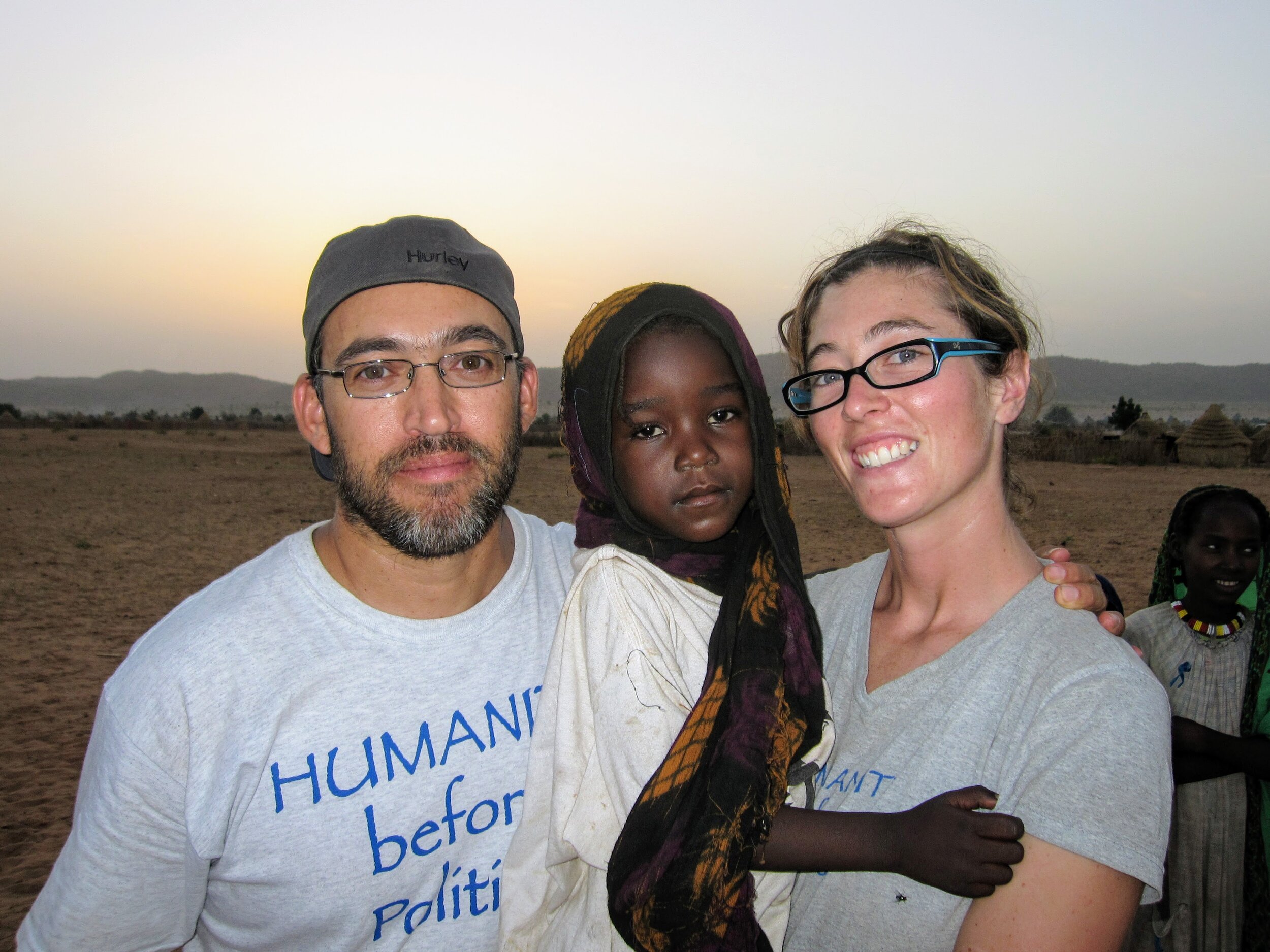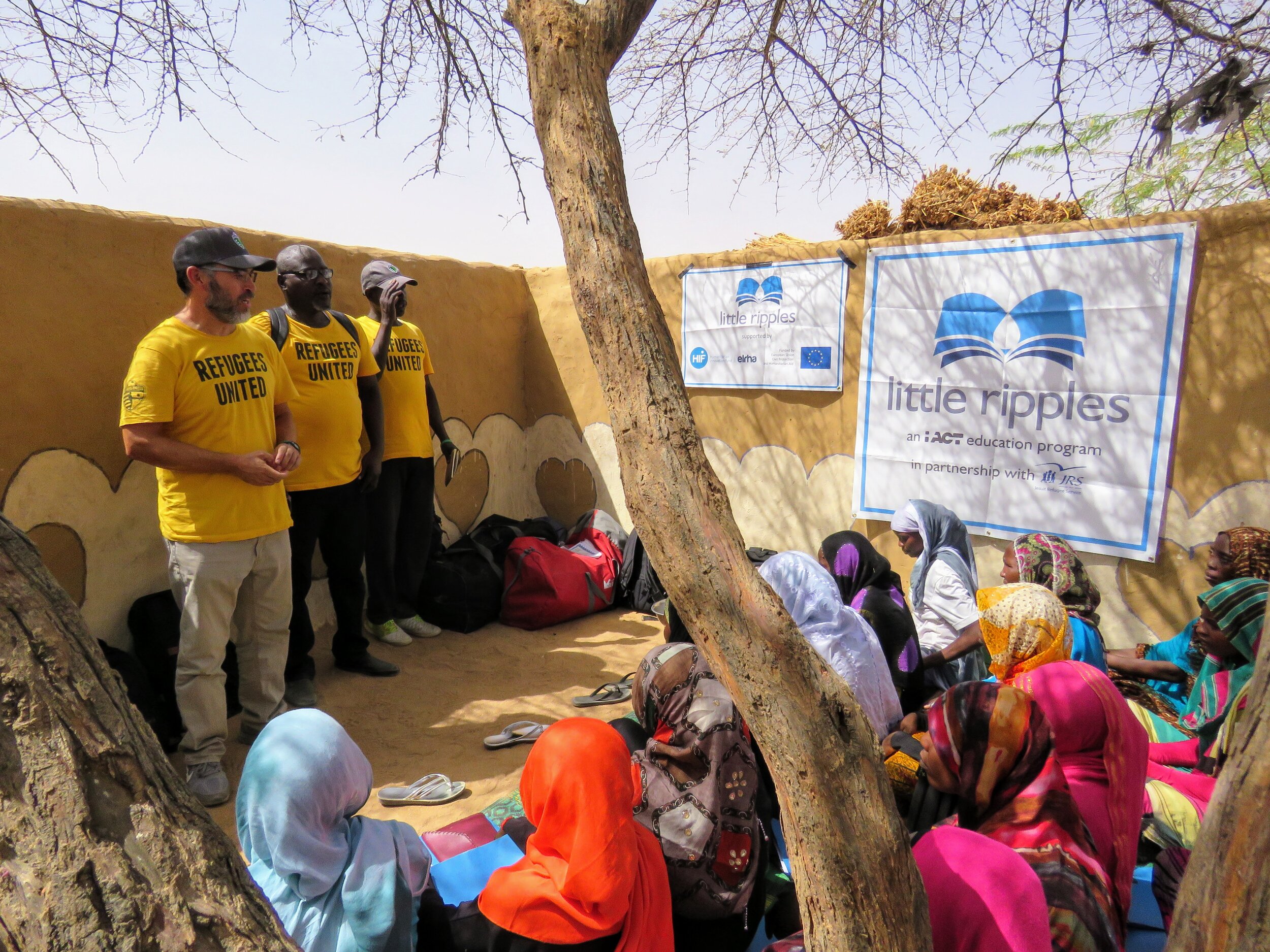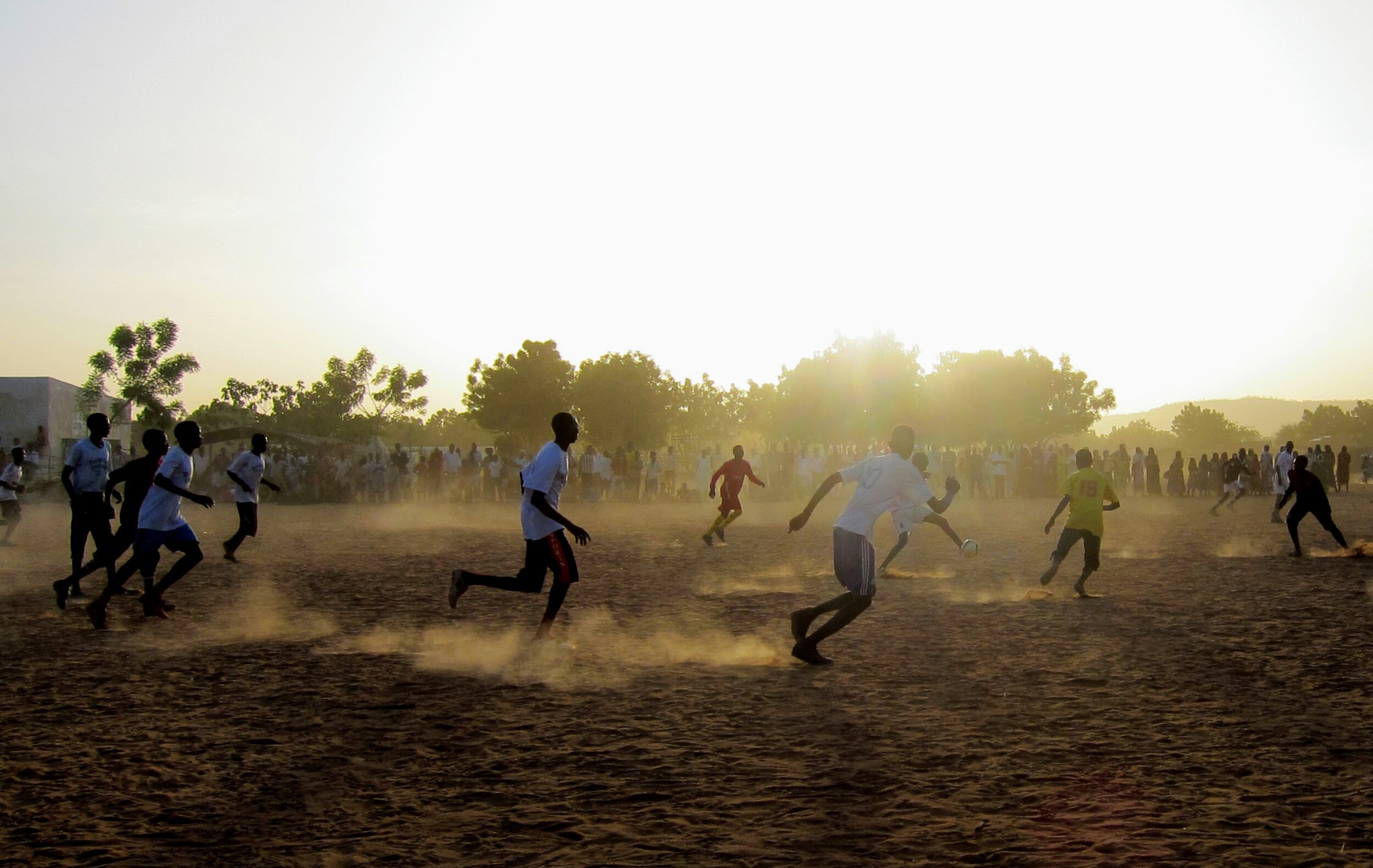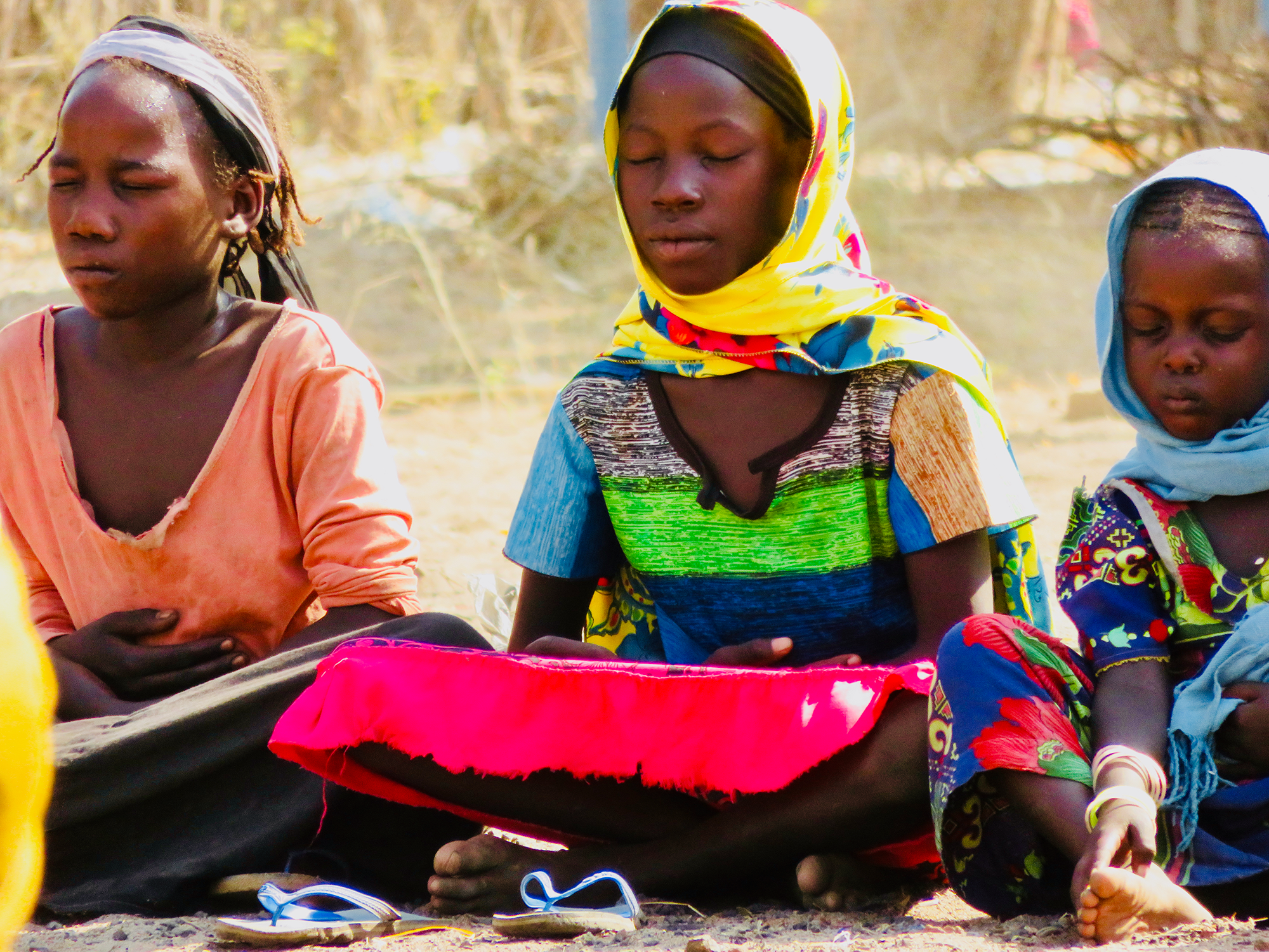Meet Gabriel Stauring and Learn About His Pre-School and Sports Programs with Darfuri Refugees
Interviewed by Diane Cyr
Editor’s note
When he first visited a Darfuri refugee camp in Chad in 2005, Gabriel Stauring had no plan to “assist” or give aid. His plan was to listen. As an in-house counselor for abused children and their families, Stauring knew the value of giving traumatized people a chance to speak with each other and share their stories. What he didn’t know was that forging those connections would become his life’s work. Today, Stauring’s organization, iACT, partners with refugees in camps around the globe to create preschools and sports programs—places where children and parents can bond, learn and heal. With programs that have reached more than 34,000 children worldwide, iACT uniquely empowers refugees to act on their own behalf, helping one another to maintain hope and well-being in places scarred by unimaginable suffering. On his 32nd trip to Chad, Stauring recently took a moment to share his experience of working alongside conflict-affected communities.
What prompted your first decision to visit a refugee camp?
It was 2004 when I first started hearing about Darfur and the unfolding genocide in that region of Sudan. It was also the 10th anniversary of the Rwandan genocide, and I felt shock and shame that the world (and I!) had done nothing to stop the killing back in 1994. So, ten years later, I knew I had to participate in some way, in any way. The numbers were mind-numbing: hundreds of thousands dead and millions displaced. I wanted to connect with the story of Darfur as personally as possible because that's what I felt was missing: the personal connection that would lead to personal responsibility. The idea was to meet with the people who were fleeing genocide and hear their stories and hopes and aspirations. It was just going to be one trip, and THEN I'd go on with my "regular" life. It did become personal, and my now regular life involves being here on my 32nd trip to Darfuri refugee camps.
What needs did you see back then that weren’t being addressed by other agencies?
Our mission in those early years was to put a face on the numbers and to amplify the voice of the refugees fleeing Darfur. For me, it was important to show the dignity and full humanity of the people we were meeting in the camps. As politicians, pundits, academics, and activists discussed what was best for the people of Darfur, we believed that Darfuris themselves should be seen and listened to.
How did you decide to create preschools and sports camps?
All the refugee parents spoke with one voice about the importance of education as a link to a better future. They also talked about wanting their children to fully live and experience joy, even while being stuck in the limbo of a refugee camp. At one point, a refugee leader, Oumda (now our main programs coordinator for all camps in Chad), directly asked us to support his community with preschool education. We could not persuade any program to come to Darfuri camps, so we co-created Little Ripples with the refugee community in 2013. It will soon expand to five camps in Chad, and we’ve adapted the model in Cameroon, Tanzania, the Central African Republic, and Greece. Our soccer program followed a similar trajectory: It came from the refugees themselves, who currently run the Refugees United Soccer as a safe space for children to learn the sport, as well as leadership, health and hygiene, and mindfulness. The Academy is in eight camps in eastern Chad and about to be expanded to another four. It’s also in Cameroon, Tanzania, and soon will go to Armenia, the Central African Republic and possibly Greece. We also supported the creation of the men’s and women’s soccer team, Darfur United.
What’s been your greatest obstacle in getting these programs running?
Obstacles: At iACT, we call them "opportunities to get creative," and we have had so, so many opportunities. None of us had previous experience working in this space, and our model evolved directly from our work as listeners and advocates. A traditional humanitarian system, with good intentions, is built to come in with fully formed "solutions" and assistance models. It’s hard to convince them to allow programs where the refugees themselves are the key players from inception to implementation to daily leadership. Of course, funding is another big issue we will always have to deal with. Being a relatively new player in the space, it is hard to compete for ever-dwindling funding opportunities.
Can you explain what you mean by a “trauma-informed approach” to your programs?
There are two main sides to our "trauma-informed approach." First, we are informed by the science on the impact trauma can have on bodies and minds. Refugees experience unimaginable trauma from violence and displacement. This trauma is then compounded when they find themselves in settings, like refugee camps, where they have little power and choice over their lives. The other side to our "informed approach" is that we refuse to see refugees as less capable or unable to be the main change-makers in their own lives and the lives of their communities. We see their full humanity and all the assets that they possess. Trauma should not be used as an excuse to take away agency from individuals.
What restorative practices, in particular, have you found most useful among your refugee clients?
Our work is done in circles, where everyone is seen and heard. It is a participatory environment where the dignity and agency of all present are respected. Our programs, from inception, become healing spaces because, at every step of the way, refugees are co-creating and making these programs their own. We incorporate mindfulness throughout. There are mindful activities that teachers, coaches, and all other staff engage in, but more importantly, our intention is to be mindfully present at every moment.
An important element of our model is that we do not leave any international staff running or supervising programs. The refugees lead and run the programs. They get to learn from the experience, and they get to make mistakes and iterate and grow from the process of running a program. Our refugee colleagues become the true experts.

